 You can’t do a series about marriage without covering the subject of divorce. Not if you want to call it in any way comprehensive. Worldwide something like 40% of first marriages end in divorce. In the United States it’s about 45% (Portugal’s rate is preposterously high, for some reason). It’s a bit lower in Japan, largely because the law (and societal pressure) make it difficult for women to get a divorce if the husband doesn’t agree. But even here it runs around 35%. It’s the spectre that hangs over every wedding, there’s no point in denying it.
You can’t do a series about marriage without covering the subject of divorce. Not if you want to call it in any way comprehensive. Worldwide something like 40% of first marriages end in divorce. In the United States it’s about 45% (Portugal’s rate is preposterously high, for some reason). It’s a bit lower in Japan, largely because the law (and societal pressure) make it difficult for women to get a divorce if the husband doesn’t agree. But even here it runs around 35%. It’s the spectre that hangs over every wedding, there’s no point in denying it.
 I’m the last person who should talk authoritatively about marriage to be sure. But I do have a lot of family experience with bad ones, and I’ve come to believe that one thing that’s even worse than divorce is a couple who should have gotten one staying together. Marriage is incredibly difficult, I think that’s hard to dispute. It may be one of the most unnatural things human beings are subjected to in the modern world, and in some sense it seems almost miraculous that some couples – even a minority – manage to be happy together (and stay that way).
I’m the last person who should talk authoritatively about marriage to be sure. But I do have a lot of family experience with bad ones, and I’ve come to believe that one thing that’s even worse than divorce is a couple who should have gotten one staying together. Marriage is incredibly difficult, I think that’s hard to dispute. It may be one of the most unnatural things human beings are subjected to in the modern world, and in some sense it seems almost miraculous that some couples – even a minority – manage to be happy together (and stay that way).
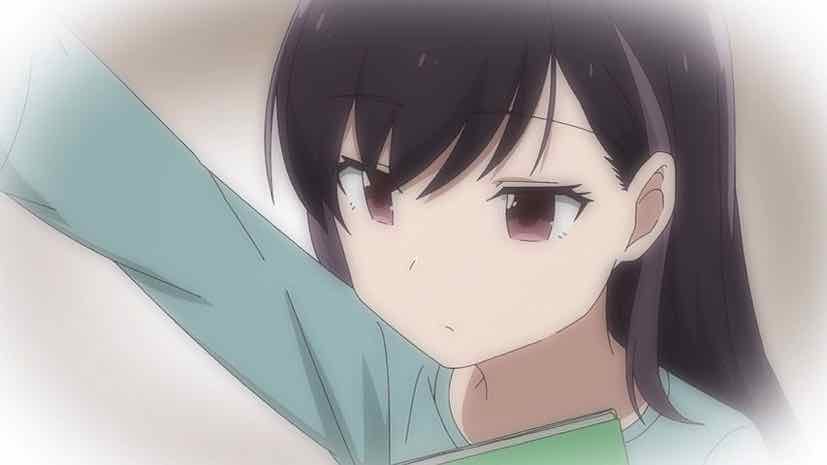 Even sham marriages are difficult – as witness the tension between Takuya and Rika. He has no idea why she’s giving him the cold shoulder, but lacks the confidence to ask her outright. For her part Rika really isn’t justified in brushing Takuya off over the Nao thing, as he did nothing wrong. She’s bringing her own baggage into this, but then, that’s what happens with couples. A seeming contrast to this is Shinshi Shou (Tone Kentarou). He’s the seeming model of a happy marriage, enjoying the beautiful bentos his wife makes for him and bragging of how lucky he is to have her.
Even sham marriages are difficult – as witness the tension between Takuya and Rika. He has no idea why she’s giving him the cold shoulder, but lacks the confidence to ask her outright. For her part Rika really isn’t justified in brushing Takuya off over the Nao thing, as he did nothing wrong. She’s bringing her own baggage into this, but then, that’s what happens with couples. A seeming contrast to this is Shinshi Shou (Tone Kentarou). He’s the seeming model of a happy marriage, enjoying the beautiful bentos his wife makes for him and bragging of how lucky he is to have her.
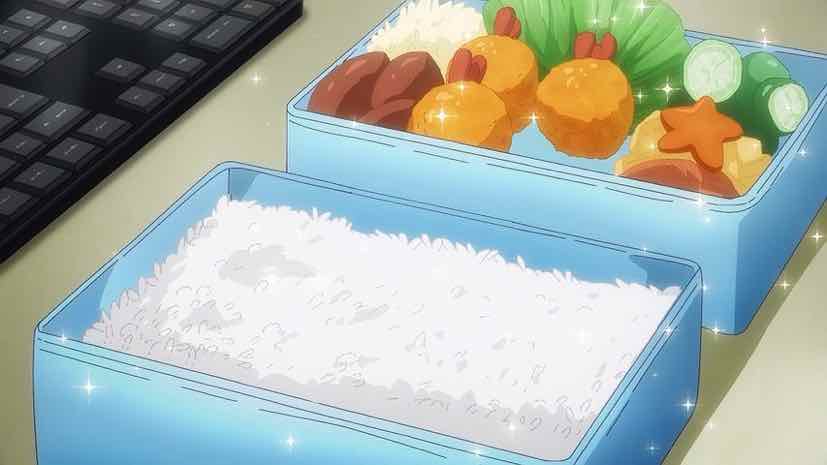 Shinshi-san seems like the last sort of person who’d bail on work and leave his colleagues in the lurch. But that’s exactly what happens when he fails to show up one day. No one has any idea where he is, and then his little son Hideo (Ise Mariya) shows up at JTC with a business card folio searching for his dad. One of my favorite parts of this episode is the way George-san (Nakata Jouji, always a delight) – the seeming icon of slack – takes charge of the situation. Is there something in his history which makes him an expert in this field? That’s not made clear (nor is whether or not he’s actually Hawaiian or just a Japanese obsessed with it, as some are) but he imposes his will on the crisis and sends Takuya off with Hideo to search for Shinshi.
Shinshi-san seems like the last sort of person who’d bail on work and leave his colleagues in the lurch. But that’s exactly what happens when he fails to show up one day. No one has any idea where he is, and then his little son Hideo (Ise Mariya) shows up at JTC with a business card folio searching for his dad. One of my favorite parts of this episode is the way George-san (Nakata Jouji, always a delight) – the seeming icon of slack – takes charge of the situation. Is there something in his history which makes him an expert in this field? That’s not made clear (nor is whether or not he’s actually Hawaiian or just a Japanese obsessed with it, as some are) but he imposes his will on the crisis and sends Takuya off with Hideo to search for Shinshi.
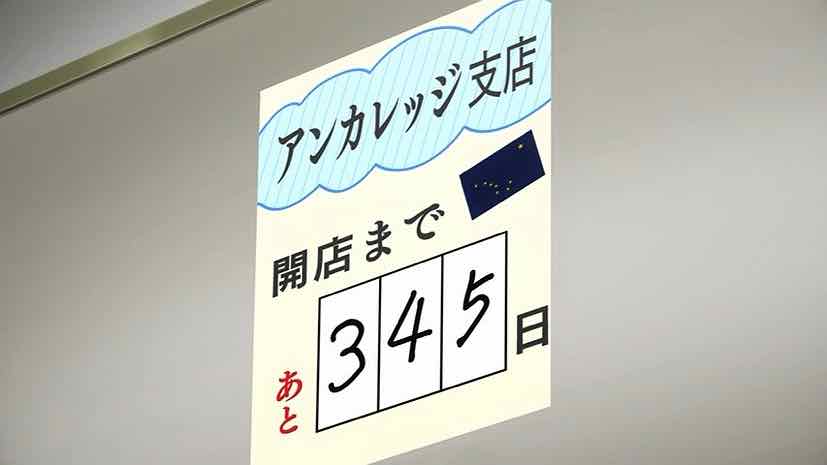 George is certainly right that Takuya is the man for this job. He’s kind and natural with children, but there’s not much he can do for Hideo except comfort him. When couples split it’s obviously rough on them, but it’s hard to have too much sympathy when grown adults leave a kid Hideo’s age to fend for themselves while they wallow in self-pity. Eventually (why didn’t he say so originally) George directs Takuya to a local bar with “Feng Shui for depressed dudes” where he figures Shinshi might be drowning his sorrows. And indeed he’s there – as is most of the office when they converge on the location.
George is certainly right that Takuya is the man for this job. He’s kind and natural with children, but there’s not much he can do for Hideo except comfort him. When couples split it’s obviously rough on them, but it’s hard to have too much sympathy when grown adults leave a kid Hideo’s age to fend for themselves while they wallow in self-pity. Eventually (why didn’t he say so originally) George directs Takuya to a local bar with “Feng Shui for depressed dudes” where he figures Shinshi might be drowning his sorrows. And indeed he’s there – as is most of the office when they converge on the location.
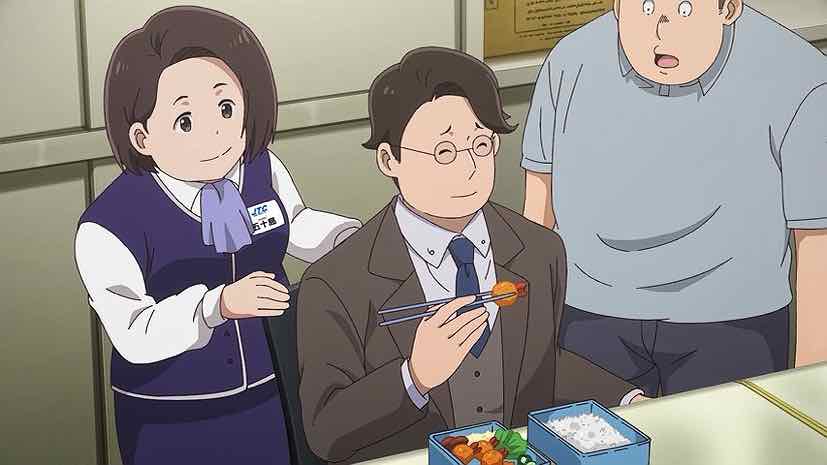 While this episode does indulge 365 Days tendency to go a bit too silly at times, it absolutely plays into its larger themes. The key takeaway from the Shinshi situation is this, I think. He’s not lying when he says he was 100% happy, and thus totally unprepared when his wife dropped the bomb on him. That happens. When a couple are disconnected, they can perceive a relationship in diametrically opposed ways. Rika doesn’t tell Takuya why she’s cold-shouldering him. Shinshi’s wife keeps her unhappiness bottled up for years rather than share it. One is a fake engagement and one a real marriage, but that shit happens all the time in relationships. Being open is really hard.
While this episode does indulge 365 Days tendency to go a bit too silly at times, it absolutely plays into its larger themes. The key takeaway from the Shinshi situation is this, I think. He’s not lying when he says he was 100% happy, and thus totally unprepared when his wife dropped the bomb on him. That happens. When a couple are disconnected, they can perceive a relationship in diametrically opposed ways. Rika doesn’t tell Takuya why she’s cold-shouldering him. Shinshi’s wife keeps her unhappiness bottled up for years rather than share it. One is a fake engagement and one a real marriage, but that shit happens all the time in relationships. Being open is really hard.
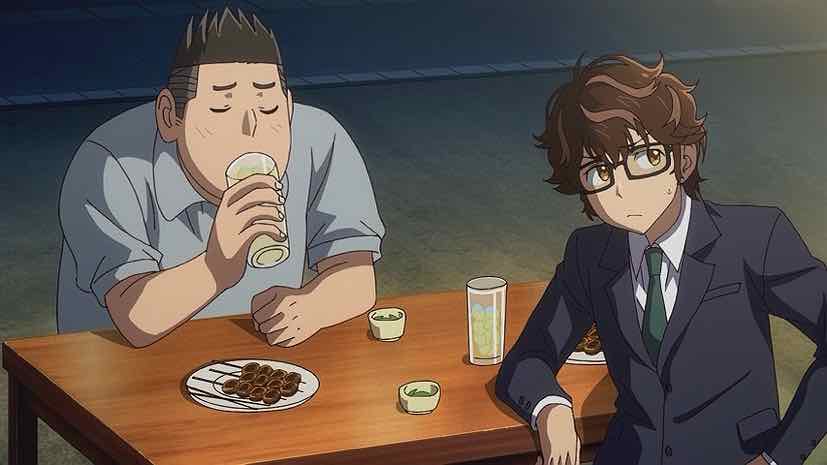 What Gonda says is interesting too. He’s jealous of Shinshi even with the current development, because at least he got married in the first place (never mind he has a kid who needs him). Is it better to love and lose than never to have loved at all? This is one of the fundamental questions of the human condition, I believe, and not just romantically. If we never expose ourselves emotionally, we limit out ability to be hurt. But we also deprive ourself of happiness we can never feel inside an emotional bubble. This is really what Rika and Takuya, experienced soloists, are dealing with as they play out their marriage fiction. You trivialize this subject at your own risk, as the two of them are finding out in no uncertain terms.
What Gonda says is interesting too. He’s jealous of Shinshi even with the current development, because at least he got married in the first place (never mind he has a kid who needs him). Is it better to love and lose than never to have loved at all? This is one of the fundamental questions of the human condition, I believe, and not just romantically. If we never expose ourselves emotionally, we limit out ability to be hurt. But we also deprive ourself of happiness we can never feel inside an emotional bubble. This is really what Rika and Takuya, experienced soloists, are dealing with as they play out their marriage fiction. You trivialize this subject at your own risk, as the two of them are finding out in no uncertain terms.


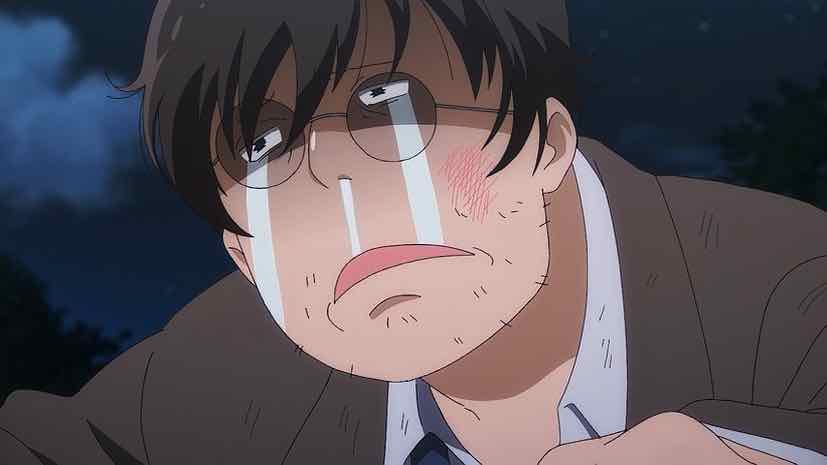
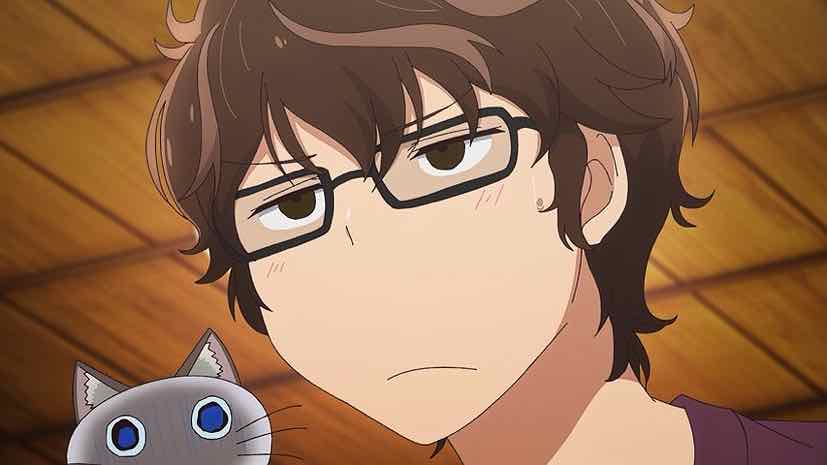
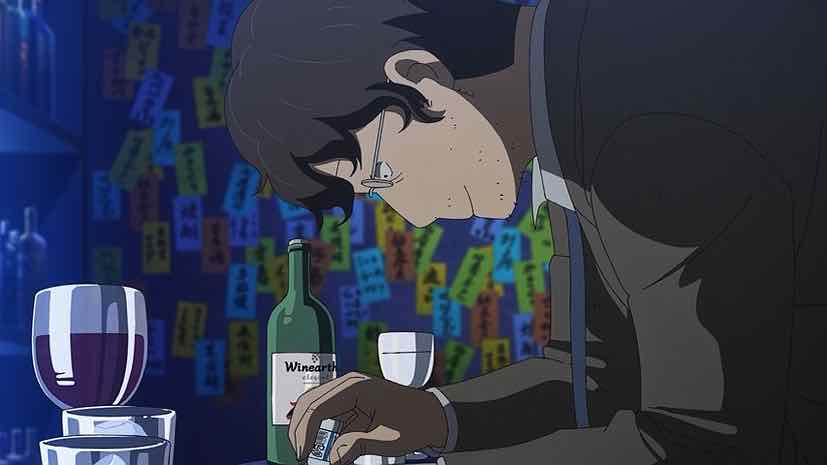
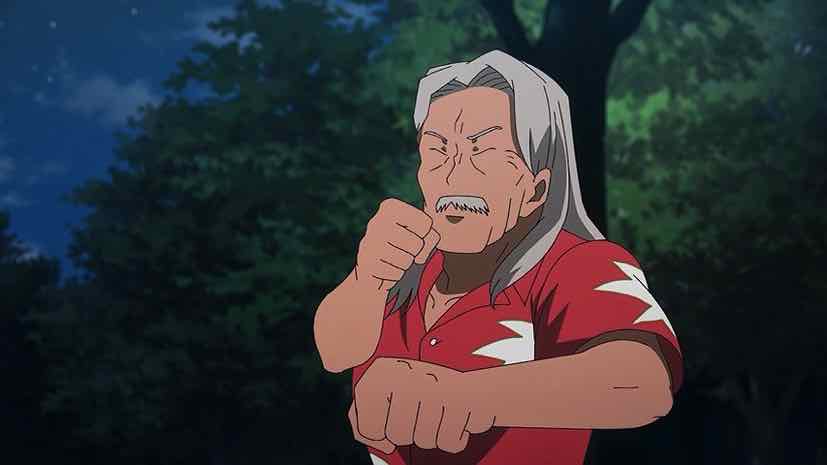
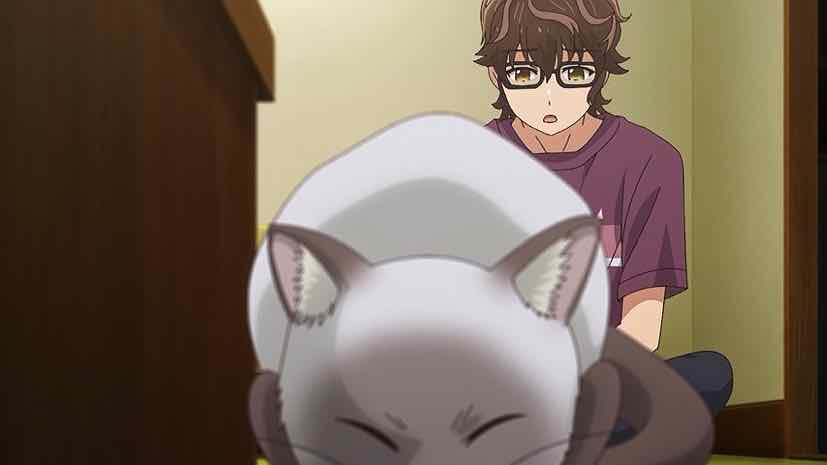
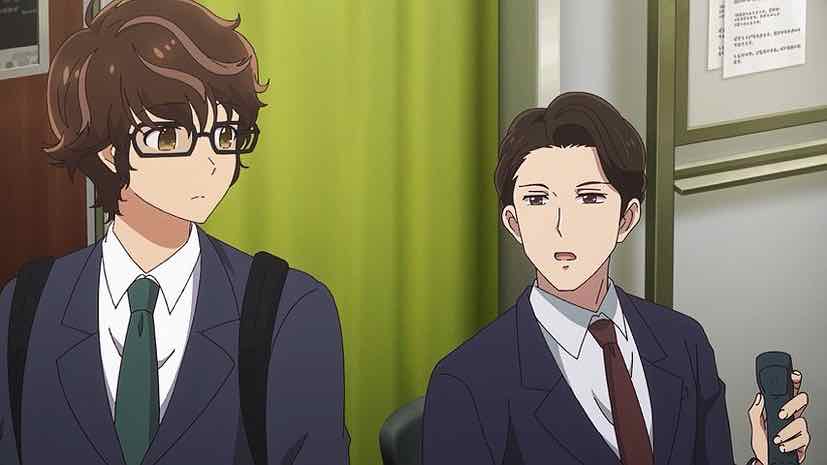
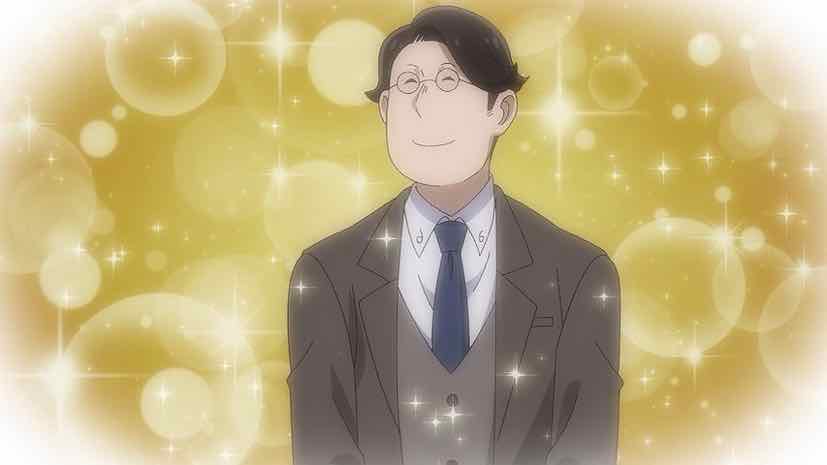
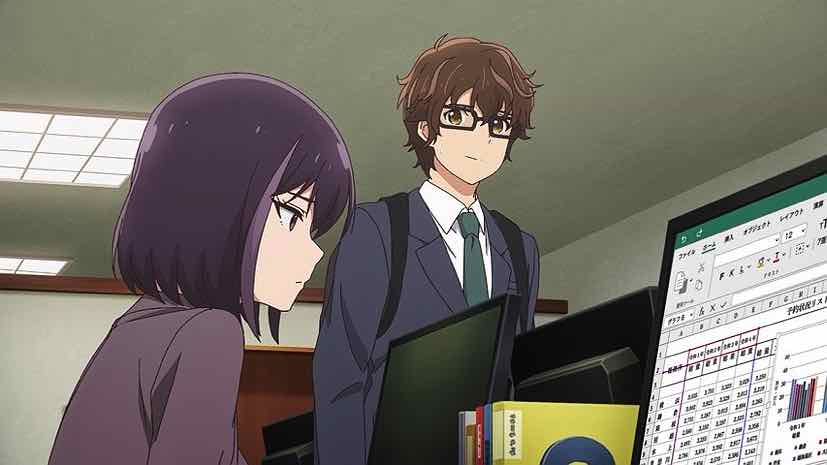
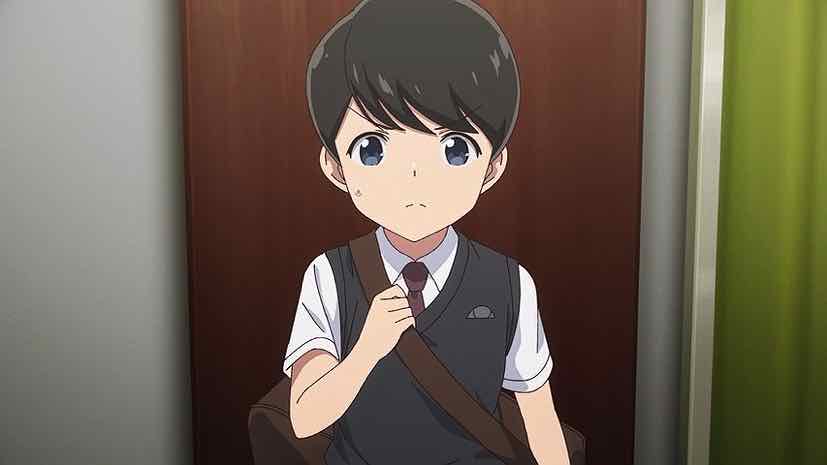
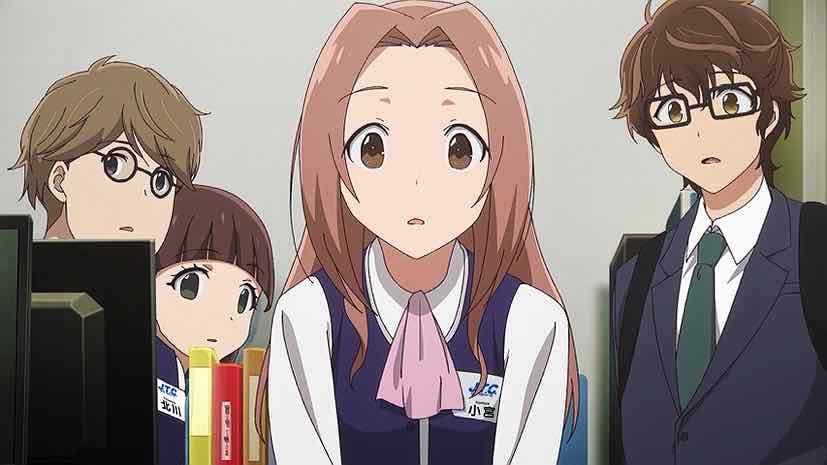
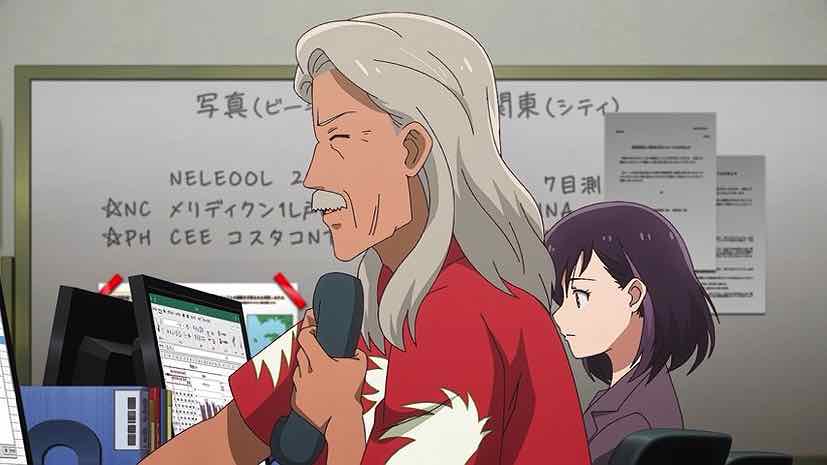

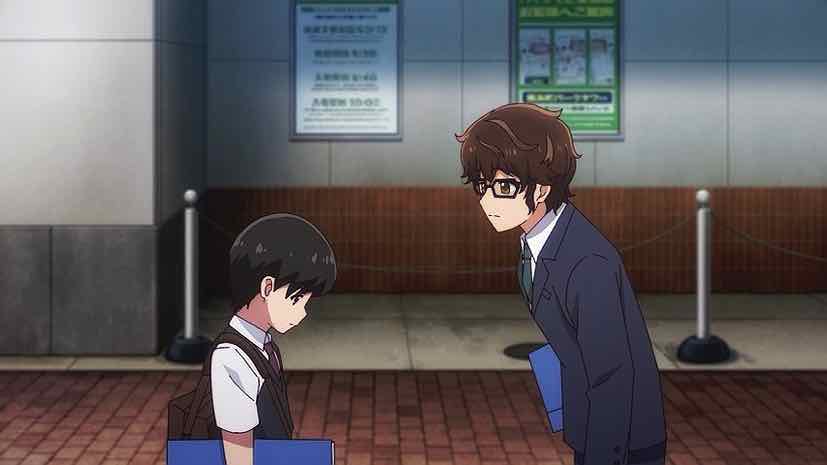
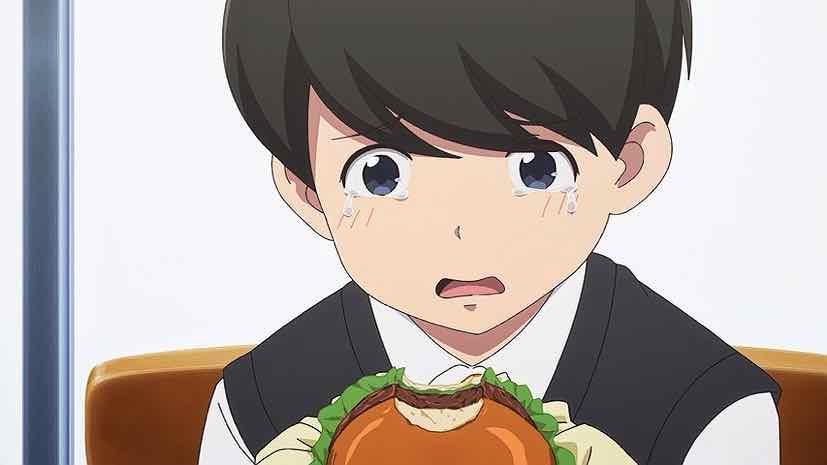
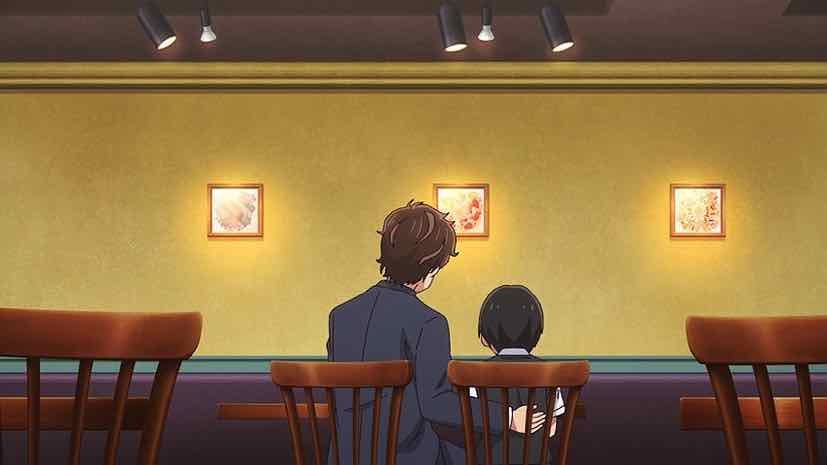
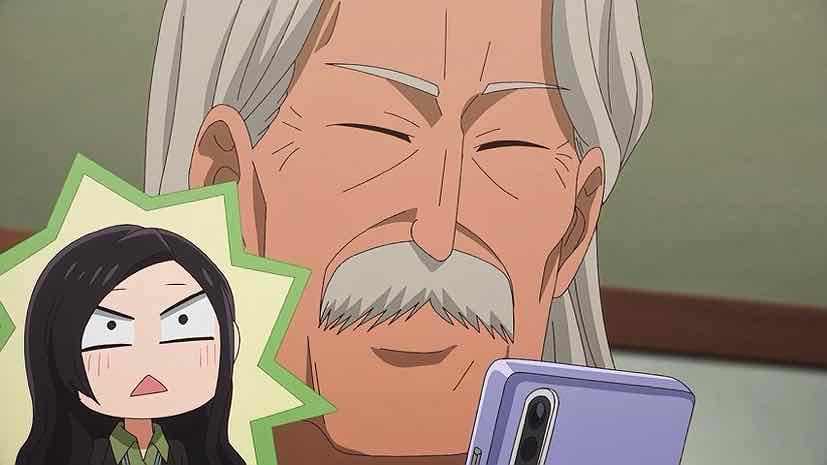
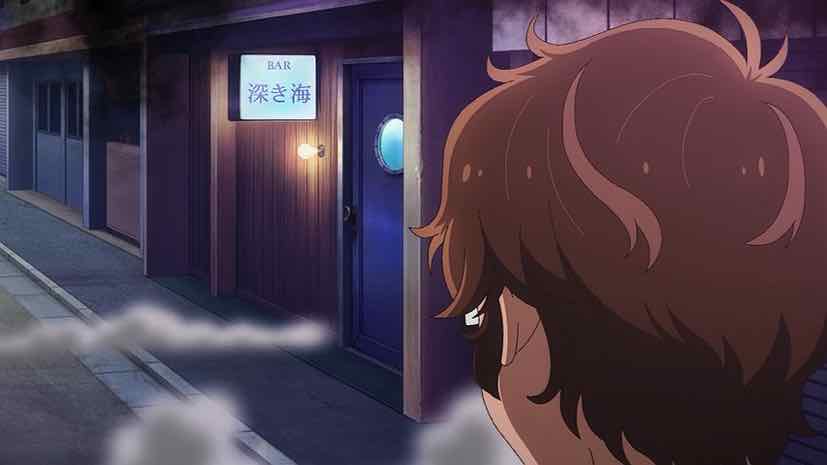
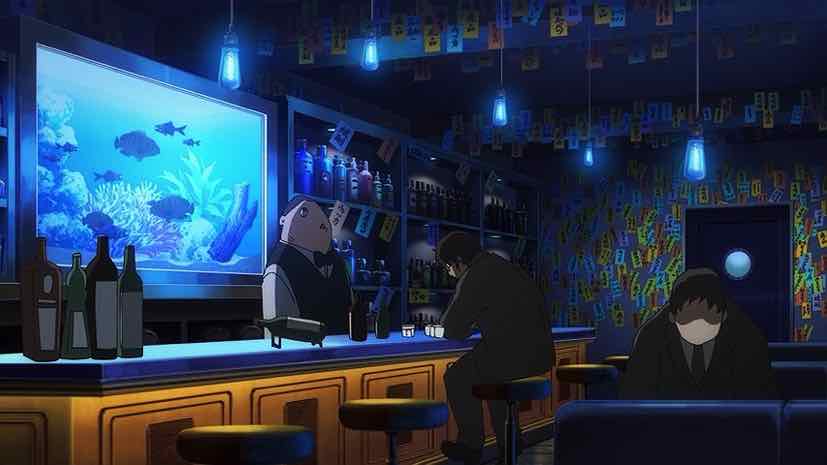
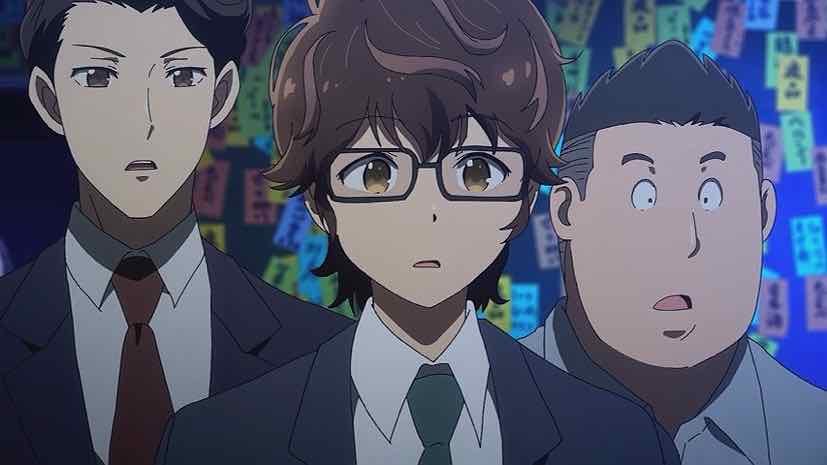
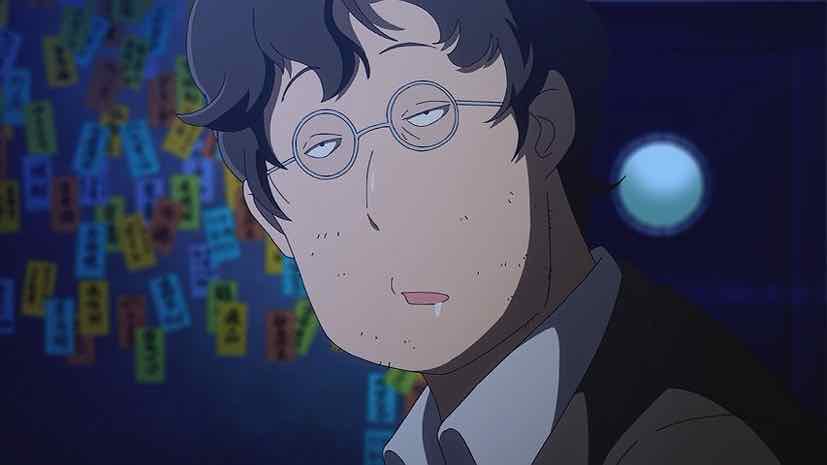
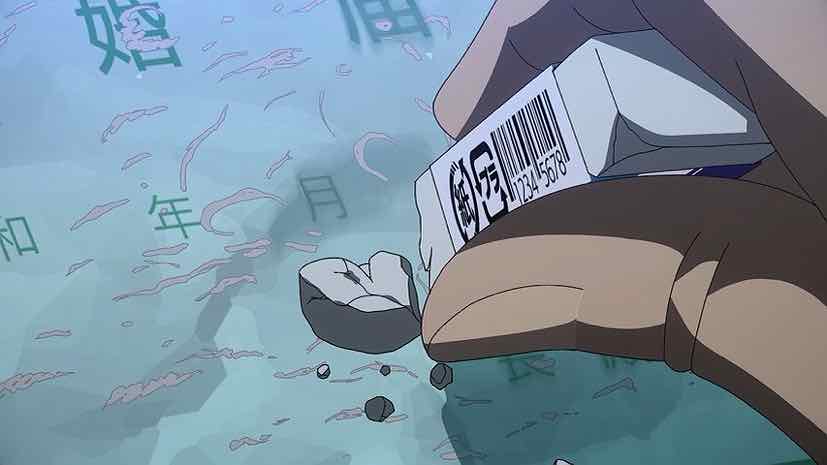
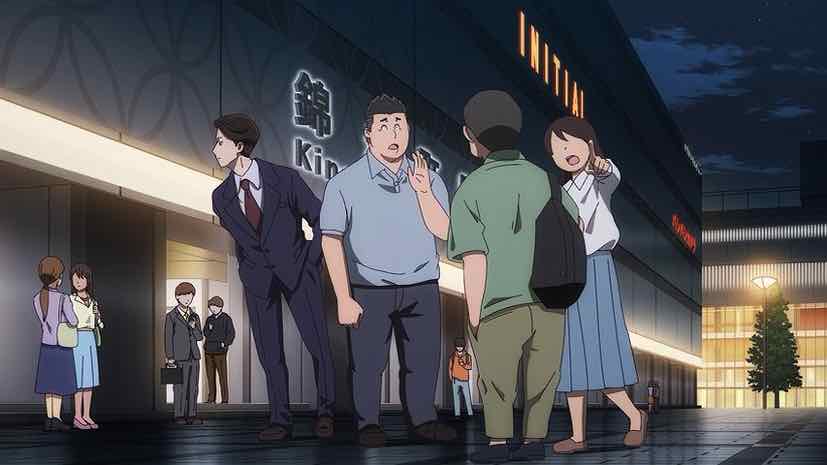
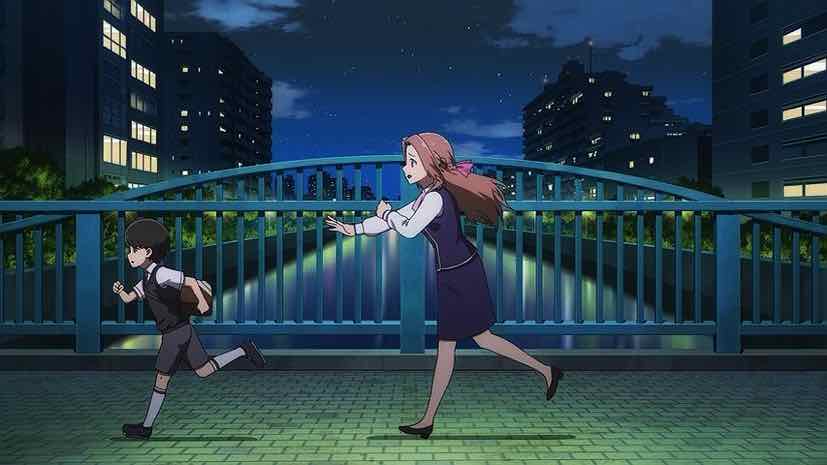
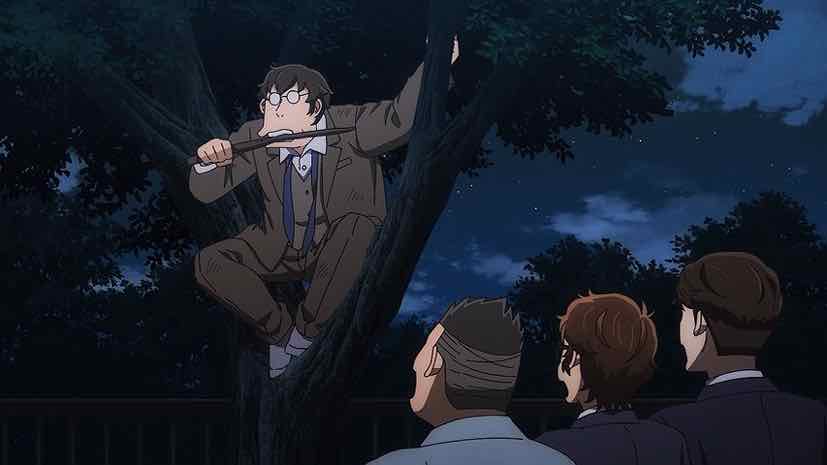

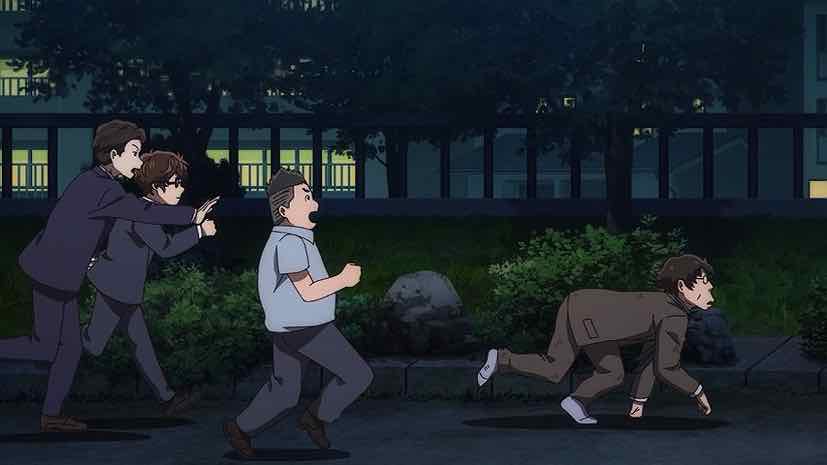
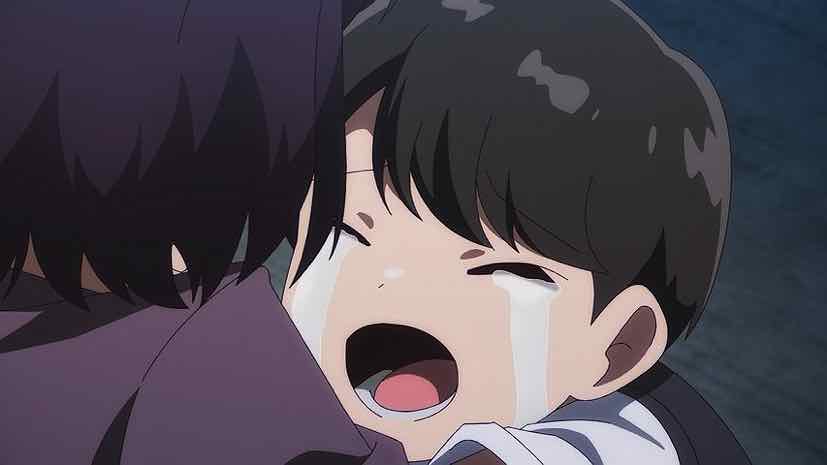
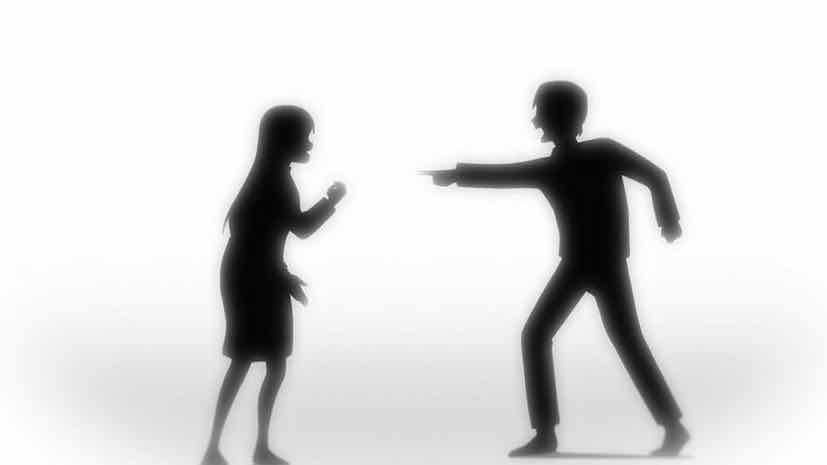
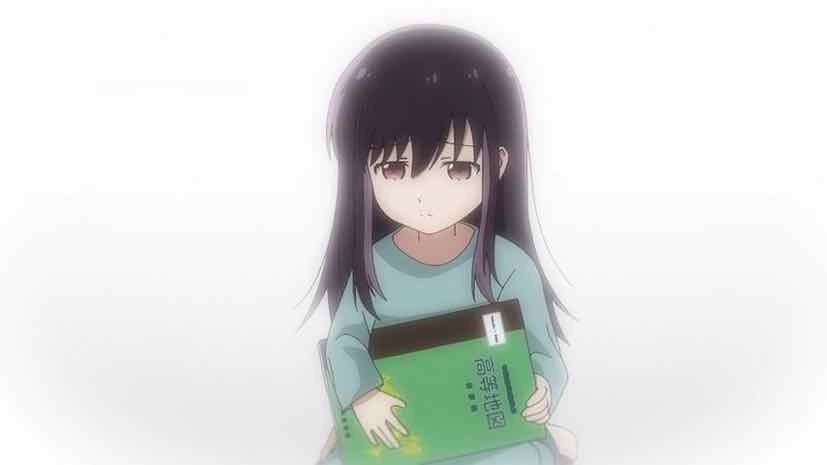
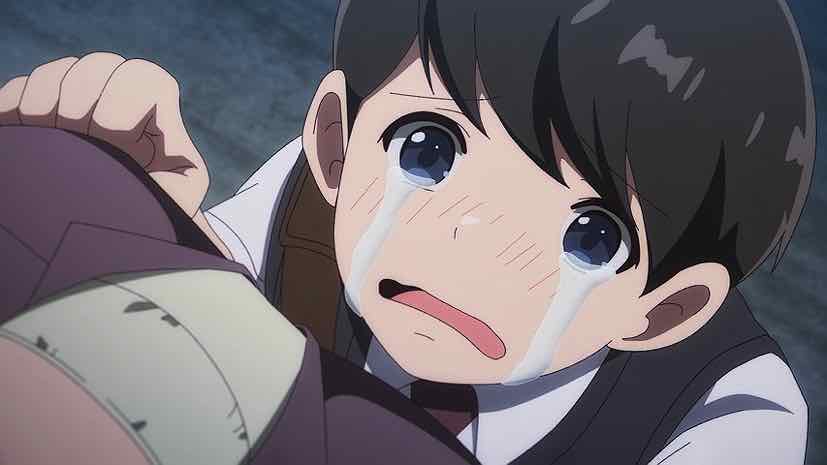
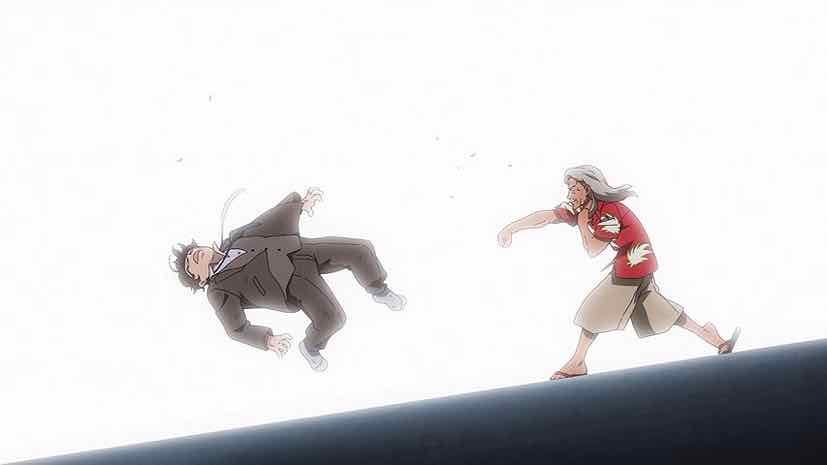
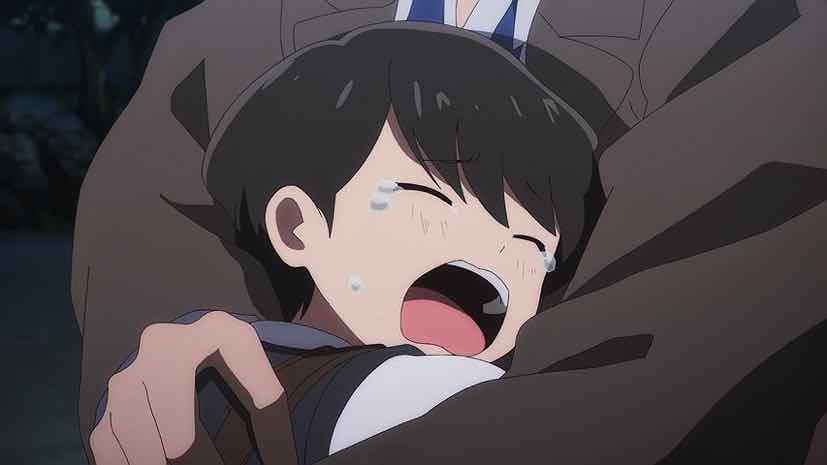
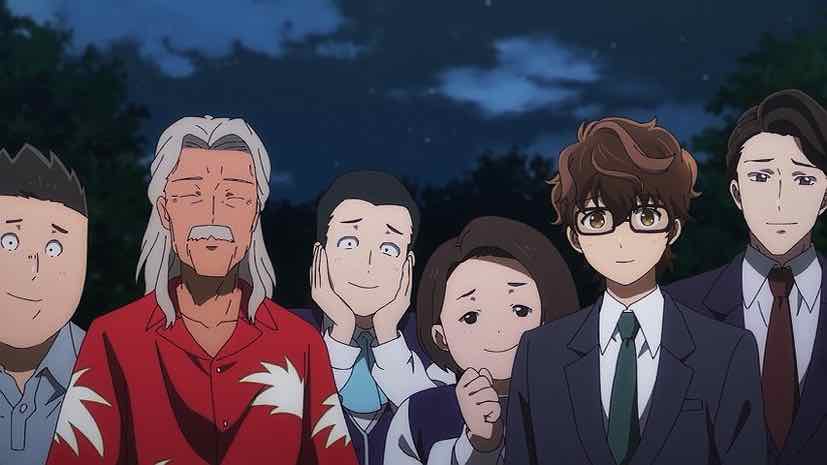
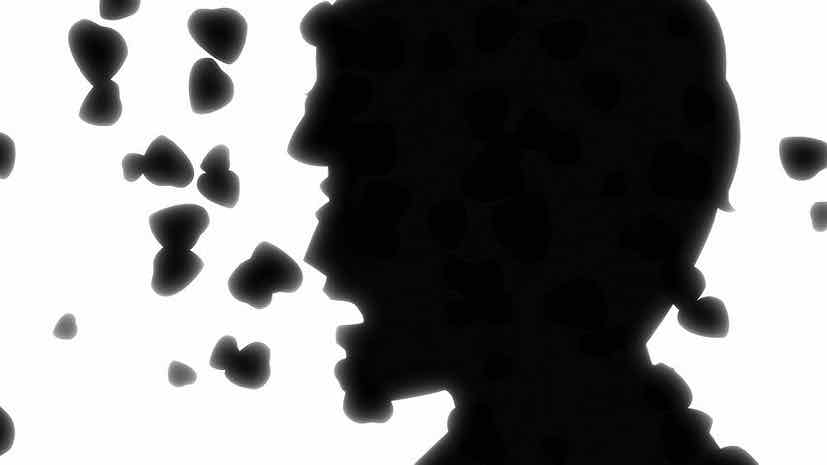
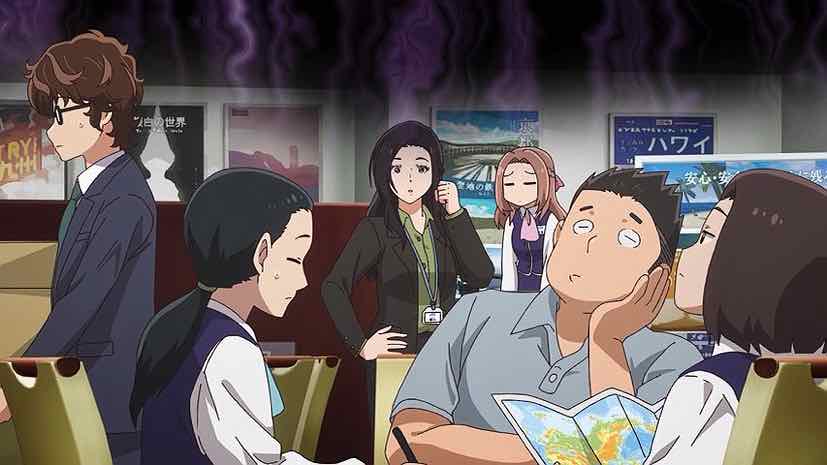

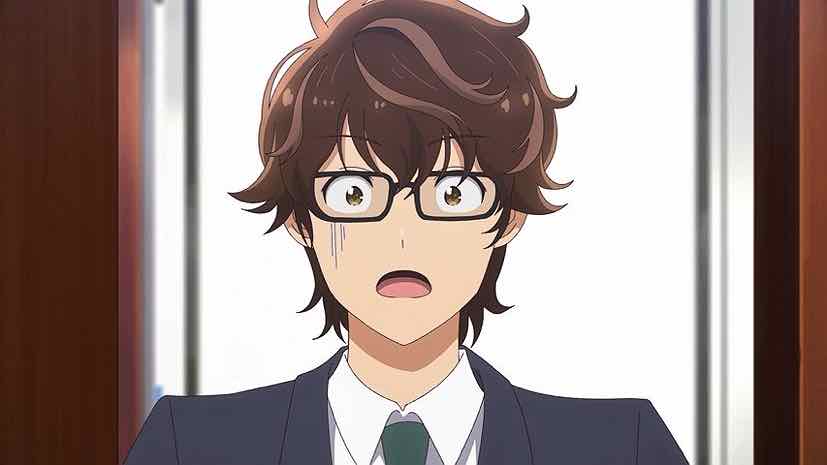


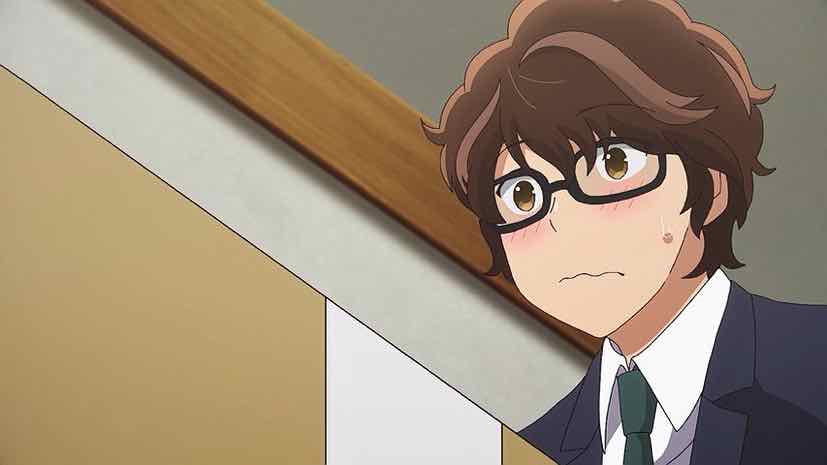




ruicarlov
November 10, 2024 at 7:13 amThose high stats in Portugal currently are in large result a part of a changing society. While some decades ago marriage was something extremely common and divorces a lot less so, today less and less people are getting married, often chosing a non-marital partnership. And older marriages are resulting in divorces (along with some new ones obviouslty). So this high percentage is most likely going to to down with time, closer to other european countries, as this time-gap gets closed.
Yann
November 11, 2024 at 9:50 amMarriage is hard, but it’s really just the relationship within it that’s hard. For anyone interested is navigated the challenges of relationships, and wanting an extremely useful framework to think about those things, I would HIGHLY recommend looking into Attachment Style Theory. Many other factors matter of course, but if you’re aware of your attachment style as well as the attachment style of the people around you, and you do the work. It will make your relationships SO MUCH better. Look into it and thank me later… 😉